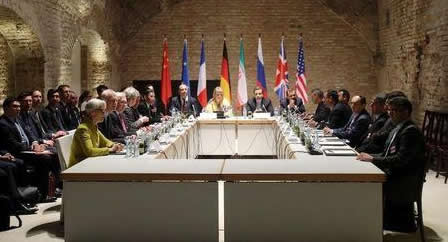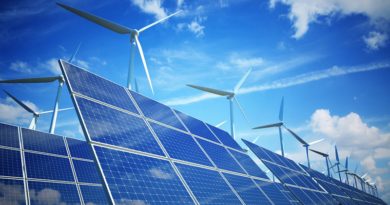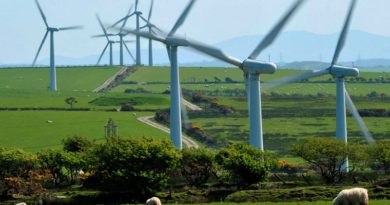UN agencies, others offer emission reduction support as Bonn meeting end
United Nations agencies including United Nations Development Programme (UNDP), United Nations Environment Programme (UNEP), the World Bank, International Renewable Energy Agency among others have outlined how they can support pre-2020 emission reductions in the area of finance and technical expertise.
Countries got down to the business of fleshing out how a new universal agreement on climate change might look by the deadline of Paris 2015 as part of worldwide efforts to keep a global temperature rise under 2 degrees Celsius this century.
Their promise came last week at a weeklong meeting of the Ad Hoc Working Group on the Durban Platform for Enhanced Action (ADP) marked the start of an intense year with a calendar of meetings.
In late 2014 countries will meet in Lima, Peru with the aim of having a draft universal agreement on the table to be finalized in 2015. The new agreement is to enter into force in 2020. In advance of that, the UN Secretary-General will host a September Climate Summit involving heads of State to leaders of the private sector, again with the aim of catalyzing climate action and raising ambition worldwide.
Christiana Figueres, Executive Secretary of the UN Framework Convention on Climate Change (UNFCCC), said: “We are now entering a serious and significant phase in the evolution of international, cooperative climate policy as we look towards both Lima and Paris.”
“The next 9 months will require all nations to raise their eyes beyond business-as-usual in order to counter the threats and deliver the multiple opportunities from moving rapidly towards a cleaner, healthier, low carbon world,” she said.
At the last UN Climate Change conference held in Warsaw late last year, countries agreed to initiate or intensify domestic preparations for the intended, nationally-determined contributions to be included in the 2015 agreement.
The Warsaw conference also called for support from developed countries, organizations like the UN and bodies providing funding for that domestic process.
The UN and other organizations last week briefed countries on the support they can provide, which will be further coordinated by the UNFCCC, including via an online portal.
As week- long negotiations ended at the weekend in Bonn, Germany, several nations and groups of nations known as Parties also outlined ideas, proposals and pathways towards raising domestic ambition and transitioning towards more low carbon economies.
“Bonn this week underlines how these outcomes and mandates from Warsaw are being taken forward by Parties with support from the UN system and others. It is a positive sign that nations have got down to business–and got down to business with focus and with enthusiasm–to start really shaping how that crucial agreement may look and operate,” added Ms. Figueres.
The ADP also saw the launch of technical expert meetings, a process in which countries outlined projects, policies and initiatives that are supporting their efforts to cut greenhouse gas emissions in the period up to 2020.
Last week’s technical meetings focused on renewable energy and energy efficiency as two areas where the technical process can assist countries in achieving their sustainable development objectives faster.
The process will continue at meetings in June with a focus on the potential of cities and the urban environment alongside land-use change, including forests and agriculture, to further assist in reducing emissions.
Kishan Kumarsingh and Artur Runge-Metzger, the co-chairs of the ADP, last week framed the challenge: “By the end of the year we should be able to see tangible results: new and strong national and international initiatives; Parties–especially developed countries–adopting new policies and taking on further actions; greater participation in innovative partnerships; and mobilization of the resources needed to make action happen.”
Close to 20 organizations ranging from UN agencies like UNDP and UNEP and the World Bank to the International Renewable Energy Agency were also present to outline how they can support pre-2020 emission reductions with, for example, finance and technical expertise. Youba Sokona of the Geneva-based South Centre who, along with Jun Arima of the Government of Japan, facilitated these expert presentations, said: “This meeting went a long way to demonstrate the potential of renewable energy and energy efficiency to close the pre-2020 ambition gap.”
“There are barriers and challenges to the deployment of renewable energy and energy efficiency. However, there are policy and technology solutions that exist to address them, bearing in mind there is no ‘one size fits all’ and that different policies apply to different countries as per their national circumstances,” he added.
During this week’s meeting, a further positive signal came from the Republic of Austria which offered €1 million of support for the preparation of Nationally Appropriate Mitigation Actions (NAMAs) under its registry.
The registry matches NAMAs in need of support with funders willing to provide that support. The funds from Austria represent an active call to developing countries to bring forward requests for funding and represents an early example of how developed and developing countries will cooperate under this innovative system



